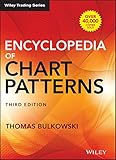
Sentiment: Bullish
Direction: Reversal
What Is The Triple Bottom Chart Pattern?
A Triple Bottom is a bullish chart pattern, commonly found at the “bottom” of a trend ahead of a reversal.
A triple bottom includes three roughly equal sized troughs.
The reversal is typically confirmed with a break of neckline resistance.
How To Identify The Triple Bottom Pattern?
You can identify a Triple Bottom when price action meets a support trendline three times and forms three troughs roughly equal in size.
These troughs are separated by two peaks at resistance.
What Is The Psychology Behind The Triple Bottom Pattern?
The Triple Bottom pattern is a bullish chart pattern that can provide traders with valuable insights into the market’s psychology.
It’s characterized by three consecutive troughs (the bottoms) of approximately the same height, with two peaks in between (the tops).
The pattern typically takes several weeks or months to form and is a sign of a potential trend reversal. Traders interpret the pattern as a sign of a transition from a bearish market sentiment to a bullish market sentiment.
The pattern represents a period of indecision in the market, where buyers and sellers are evenly matched, but ultimately buyers gain momentum and push the price higher.
The psychology behind the triple bottom pattern is similar to that of the double bottom pattern.
The first trough represents a period of strong selling pressure, where sellers are in control and pushing the price lower. However, buyers eventually step in and push the price higher towards the first peak.
The first peak represents a period of indecision in the market, where buyers and sellers are unsure of the direction of the trend.
As the pattern continues to form, the price moves lower again towards the second trough.
The second trough represents a retest of the previous support level, where buyers are in control and pushing the price higher again towards the second peak. The second peak represents another period of indecision in the market.
The pattern then repeats with a third trough, followed by a third peak. Once the price breaks above the third peak, it’s a signal that the trend has reversed, and traders may enter long positions.
How To Trade The Triple Bottom Pattern?
To trade the Triple Bottom pattern, traders typically wait for the price to break above the third peak with a strong volume surge.
The breakout should ideally occur on higher than average trading volume, as this confirms that there is significant buying pressure behind the move.
Traders may enter a long position once the price breaks above the third peak, with a stop loss placed below the third trough.
The profit target can be set based on the height of the pattern, with the expectation that the price will move at least the same distance as the pattern’s height in the direction of the breakout.
Alternatively, traders may wait for a pullback to the third peak before entering a long position. This approach can provide a better risk-to-reward ratio, as the entry price is closer to the third peak, and the stop loss can be placed tighter.
However, it may also result in missing out on some of the initial gains from the breakout. Ultimately, the best approach will depend on the trader’s risk tolerance, trading style, and market conditions.
It’s worth noting that the triple bottom pattern can also result in a false breakout, where the price briefly breaks above the third peak before reversing course.
Traders should be aware of this possibility. Also be sure to use technical indicators and other tools to confirm the validity of the breakout. Access these tools at TradingView.
Triple Bottom Performance Expectations Explained
Once you have identified a triple bottom, you can expect the market to be bullish when resistance is broken.
To find potential targets, measure from the resistance to the lowest low of the troughs.
Project the measurement multiplied by 74% from the former resistance.


